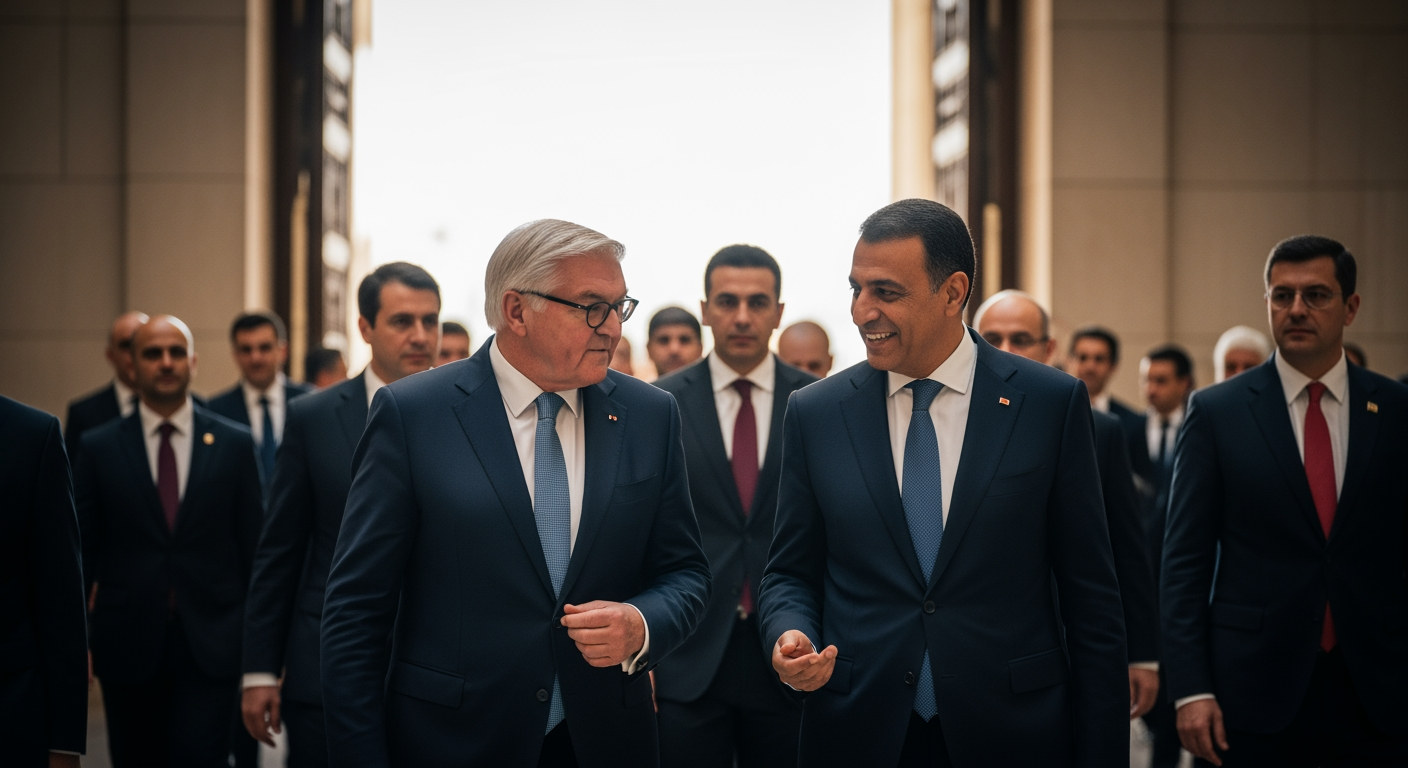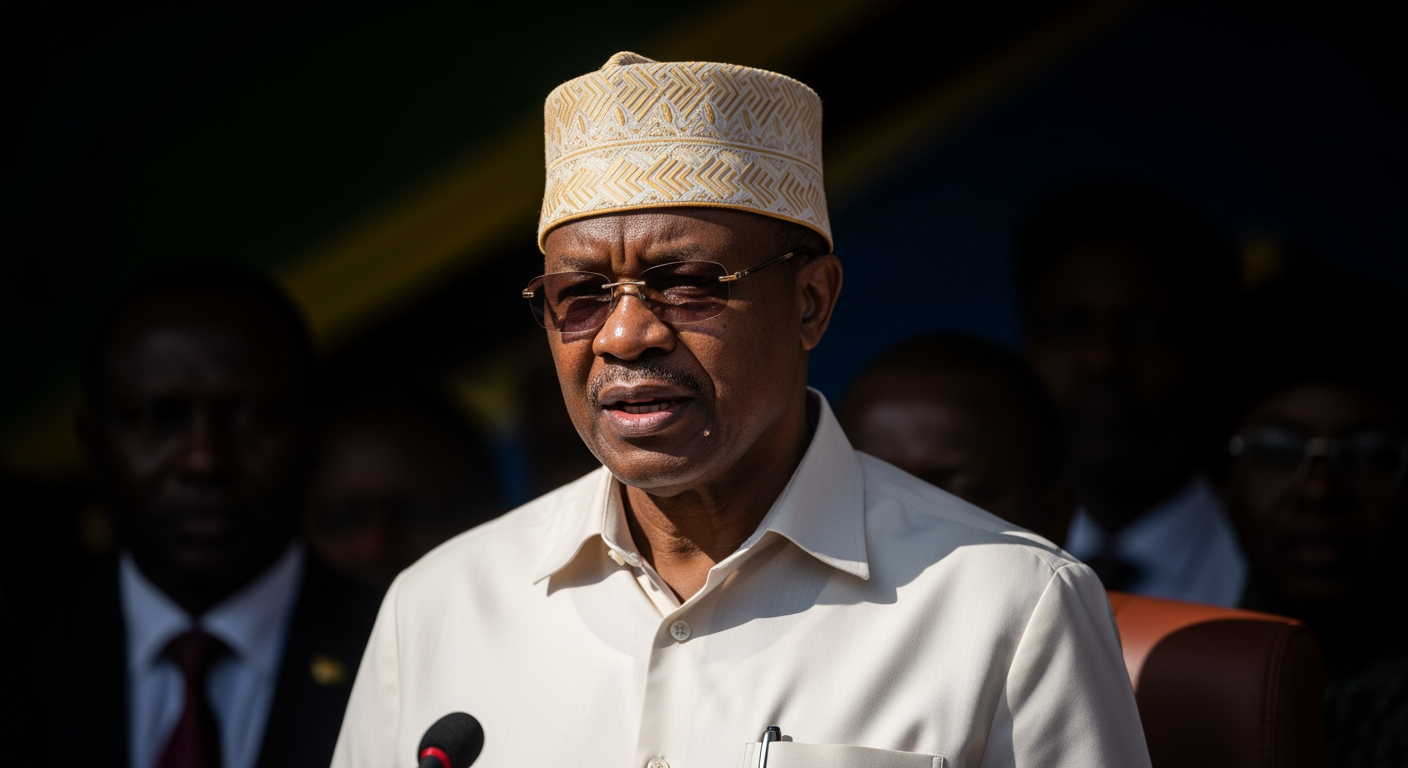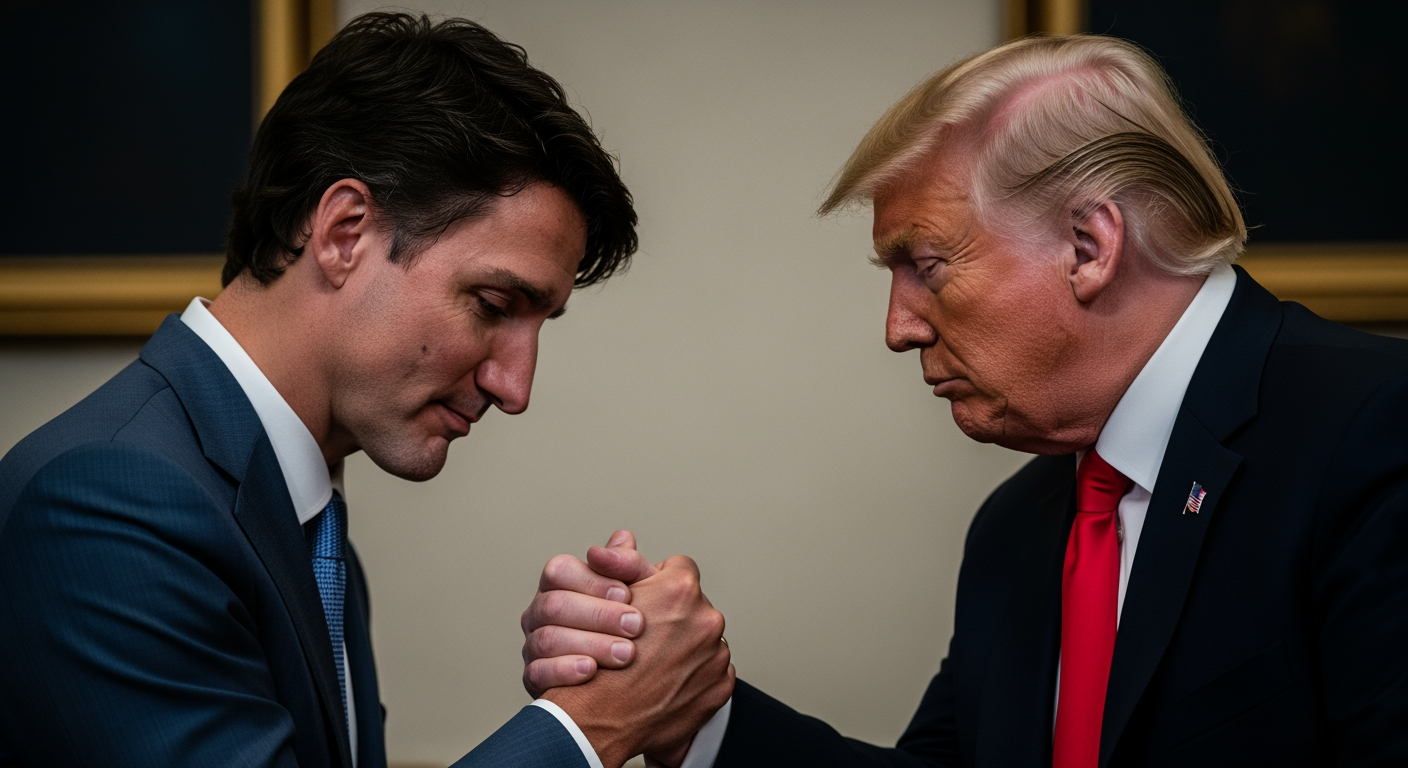Related Articles

Grand Egyptian Museum Opens to Global Fanfare, German President Steinmeier Underscores Cultural Diplomacy

Tanzanian Leader Secures Landslide Re-election Amidst Widespread Turmoil and Repression Concerns





In a move underscoring the delicate state of North American relations, Canadian Prime Minister Mark Carney issued a formal apology to former U.S. President Donald Trump last week following a contentious anti-tariff advertisement that utilized archival footage of Ronald Reagan. The incident, which ignited a diplomatic firestorm, prompted an immediate cessation of trade negotiations by the former American president and highlighted the persistent fragility in the economic ties between the two closely intertwined nations. The apology, delivered privately amidst an international summit, served as a poignant moment in an already turbulent period for Canada-U.S. diplomacy, revealing the depth of U.S. sensitivity to perceived slights and the lengths to which Canada felt compelled to go to de-escalate tensions.
The controversy originated with an advertisement commissioned by the provincial government of Ontario, led by Premier Doug Ford. The ad, aired across American television markets, featured excerpts from a 1987 speech by former U.S. President Ronald Reagan, where he articulated concerns about the detrimental effects of tariffs. Reagan's voice, heard stating that "trade barriers hurt every American worker and consumer" and that "high tariffs inevitably lead to retaliation by foreign countries and the triggering of fierce trade wars," was intended to resonate with American audiences and underscore the shared historical perspective on free trade. The Ontario government's campaign reportedly cost approximately $75 million and aimed to influence public opinion in key U.S. states regarding the economic impact of tariffs.
However, the ad's message, designed to advocate for free trade, instead provoked a strong negative reaction from former President Trump. He publicly denounced the advertisement as "false" and "fake," asserting that Reagan, contrary to the ad's implication, "loved tariffs". This interpretation starkly contrasted with Reagan's well-documented legacy as a proponent of free trade, who had negotiated the Canada-U.S. free trade agreement. The Ronald Reagan Presidential Foundation and Institute also weighed in, stating the ad "misrepresents" Reagan's views, even while acknowledging the authenticity of the quotes used. This public dispute over historical context quickly escalated beyond a mere disagreement over an advertising campaign, morphing into a significant diplomatic flashpoint.
The former U.S. president's response was swift and unyielding. Angered by what he perceived as a direct challenge to his economic policies and a fraudulent use of an American icon, Trump announced a sudden halt to "all trade negotiations" with Canada. He further warned of additional tariffs on Canadian imports, citing the ad as "egregious behavior" intended to influence U.S. court decisions, particularly in a case concerning his administration's tariff authority. This abrupt termination of talks sent shockwaves through both capitals, particularly as the two countries were engaged in sensitive discussions to manage existing tariffs and ensure the smooth functioning of their integrated economies under the United States-Mexico-Canada Agreement (USMCA).
The sudden breakdown in negotiations prompted immediate damage control efforts from Ottawa. Prime Minister Carney, who had only recently assumed office, found himself navigating a fraught relationship already strained by previous trade disputes and the protectionist stance of the Trump administration. The incident occurred while Carney was attending an Asia-Pacific summit in South Korea, where he made the private apology to Trump during a dinner hosted by South Korea's president. Carney publicly confirmed the apology, stating, "I did apologize to the President. The President was offended". He also revealed that he had personally advised Ontario Premier Doug Ford against running the controversial ad, a detail that subtly underscored the federal government's efforts to manage provincial actions that could impact national foreign policy.
The Reagan ad debacle did not occur in a vacuum but against a backdrop of persistently strained Canada-U.S. relations during the Trump presidency. Historically, the two nations have shared one of the closest and most extensive bilateral relationships in the world, characterized by the longest undefended border, deeply integrated economies, and strong security cooperation. However, the advent of the Trump administration ushered in a period of heightened tension, primarily centered on trade. The renegotiation of the North American Free Trade Agreement (NAFTA), which ultimately led to the USMCA, was a contentious process marked by frequent threats of tariffs and accusations of unfair trade practices from the U.S. side.
Even after the USMCA's implementation, trade irritants continued to surface. The U.S. had imposed tariffs on Canadian steel and aluminum, leading to retaliatory measures from Canada and exacerbating economic anxieties. Against this backdrop, the Ontario government's decision to run an anti-tariff ad, particularly one invoking a former Republican president, was viewed in Washington as a direct provocation. Canadian Prime Minister Carney acknowledged the federal government's responsibility for the broader relationship, stating, "I'm the one who is responsible in my role as prime minister for the relationship with the president of the United States…So things happen. We take the good with the bad, and I apologized". This statement reflected the reality of Canadian leaders often having to manage an unpredictable American presidency while safeguarding vital national interests.
Following the apology and the Ontario government's decision to pause the ad campaign, hopes for a resumption of trade talks emerged. Premier Ford stated that the ads would be suspended to allow negotiations to recommence. Prime Minister Carney reiterated Canada's readiness to re-engage in trade discussions "when the Americans are ready". This signaled a Canadian willingness to de-escalate and demonstrate flexibility in the face of U.S. demands. The incident highlighted the immense leverage held by the U.S. in the bilateral relationship, a dynamic famously described by former Canadian Prime Minister Pierre Trudeau as akin to a mouse sleeping next to an elephant.
The episode also cast a spotlight on the intricacies of federal-provincial relations in Canada, where provincial actions can have significant international implications. While the federal government maintains primary responsibility for foreign policy, actions by sub-national entities like Ontario can directly impact diplomatic efforts. The immediate aftermath saw Canadian diplomats working to repair the strained relationship, emphasizing the need for continued dialogue despite the friction. The enduring economic interdependence, with billions of dollars in goods and services crossing the border daily, ensures that cooperation remains a fundamental necessity, even when political rhetoric and actions create significant headwinds.
The apology from Canadian Prime Minister Mark Carney to former U.S. President Donald Trump over the Reagan ad serves as a vivid reminder of the persistent challenges in the Canada-U.S. relationship, particularly during periods of protectionist sentiment in Washington. While the ad's intent was to highlight the shared historical commitment to free trade, its execution became a catalyst for renewed diplomatic tension and a temporary halt to crucial trade talks. The incident underscored the delicate balance Canadian leaders must strike in managing relations with their powerful southern neighbor, often necessitating a pragmatic approach to de-escalate disputes. Despite the friction, the deep economic and social ties between Canada and the United States ensure that both nations ultimately seek common ground, understanding that their prosperity and security remain profoundly interdependent. The rapid response and subsequent apology reflect a clear determination to move past the controversy and resume the vital, albeit often challenging, work of bilateral engagement.